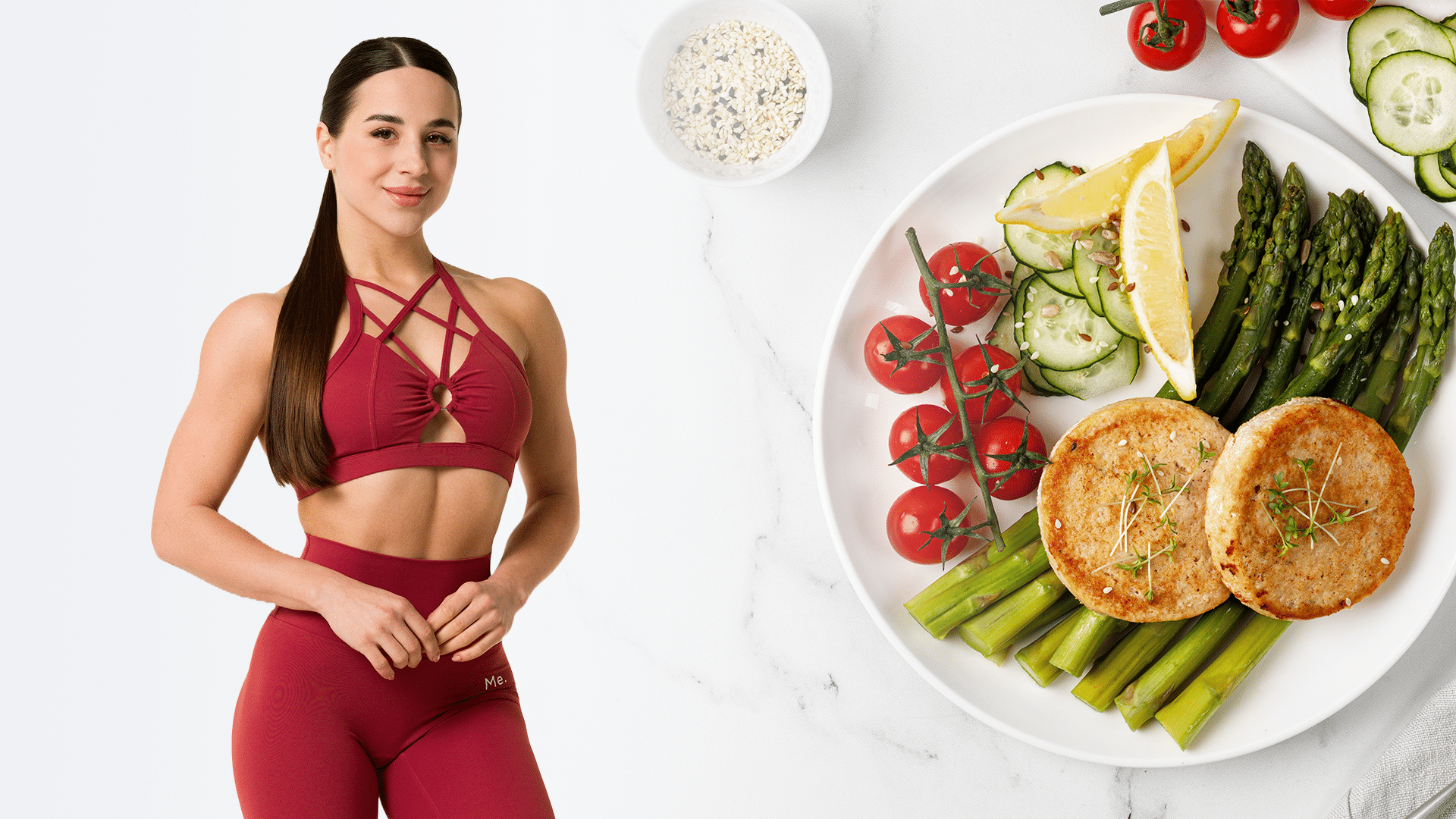When most people hear the word fasting, it is not uncommon to quickly assume that it is for religious purposes even though there are scientifically proven benefits of fasting outside spiritual gains. Whether for religious purposes or not, it is simply the controlled consumption of food. For anyone intending to embark on one, what breaks a fast is one of the first things they want to be sure of. Although answers to this can be confusing for someone who does not have adequate information, it is important to note that the answer to this will vary depending on the type of fasting you are following and for what purpose (9, 10).
Apart from religious purposes, people engage in fasting for various reasons. Weight loss, a possible cure for diabetes, fitness, mental alertness are just a few of the plenty of claimed benefits of intermittent fasting. When people don’t eat, a lot of things are involved from burning of excess fat stored in the body to an intense feeling of weakness when the whole energy has been depleted to the barest. Among several misconceptions, some people think that taking anything like water during a fast signifies the end of it. This is, however, not totally true as there are substances you can consume without breaking it (5, 8).
What Is Intermittent Fasting?
When we wake up in the morning, we are looking for the first meal of the day – breakfast. Well, what this simply means is that we have been fasting from the moment we finished our dinner the previous night. After tucking away your avocado sandwich or slurping up your cereal, you have successfully broken your fast. Intermittent fasting is going without food at intervals, and there are various ways to achieve this.
Intermittent fasting should not lead to starvation. The two are different because intermittent fasting is intentional. After all, the individual has chosen to withhold from any form of meal even when there is enough laying around the house. Starvation, on the other hand, is nothing like fasting; it is the involuntary lack of food consumption. It is usually beyond the control of individuals experiencing it, and this is a direct result of a lack of access to food. A lot of people around the world fall prey to starvation on a daily basis.
There are different types of intermittent fasting, depending on the purpose and health status of people considering to be actively involved in it (9, 10). These include:
A 12-hour fast
This type is the easiest for beginners as it involves fasting for 12 hours per day. The individual may, therefore, choose to fast immediately after taking the last meal of the day, at about 8 pm and end it by eating breakfast at about 8 am the next day.
Want to build an attention-grabbing bubble butt, blast away fat that’s stored in all the wrong places, spring-clean your diet, turn back the clock on your skin, skyrocket your self-confidence and shatter your insecurities? Check out the BetterMe app and set this plan in motion!
A 16-hour fast
During this type of fast, the individual will only have the liberty of eating within an 8 hour window. If you are considering giving it a try, the best approach to this is to finish dinner at approximately 7 pm, and go without consuming any meals until around 11 am the next day. You can eat from 11 am till 7 pm when the fast begins again.
A 5:2 fast
This involves choosing any two days of the week to go without the standard calorie intake. Men usually stay within a 600-calorie limit while women skate by on 500 calories a day.
Alternate-day fasting
There are various approaches to this type of fast, but the most common one is forgoing food altogether for a day and then getting back to normal once the 24 hours have elapsed.
‘Skipping meals’ fast
This is a fast where the individual chooses to skip either breakfast, lunch or dinner. It is a common type of fasting that most individuals engage in since it doesn’t require dramatic changes and any drastic restrictions whatsoever.
A 20-hour fast
During a 20-hour fast, it is pretty self-explanatory that you are supposed to lay off food for 20 hours. You are still left with the remaining four hours of the day, so feel free to enjoy a delicious meal. If you’ve set yourself on trying out this fast you should consult an expert dietitian or any related health practitioner as it may be risky for anyone with an underlying health problem.
Benefits Of Intermittent Fasting
One of the most well-known benefits of fasting is the loss of weight, but there are numerous other advantages to this routine that are often overlooked. When you actively engage in intermittent fasting, the following are some of the benefits that you stand to gain (1):
- Fat loss
- Prevention and reduction in the occurrence of diseases such as neurodegenerative diseases, diabetes type 2, and some types of cancer
- Improved heart condition
- Mental stability, fitness and alertness is increases
- Healthy and fit body
- Mental clarity
- Blood insulin reduction
- Reduction in blood sugar level
- Prevention of high blood pressure
- Decreased inflammation of cells
Read More: 12 Hour Intermittent Fasting for Weight Loss and other Benefits
What Breaks A Fast And What Does Not?
Generally speaking, once you consume anything that will supply enough calories to fuel the energy requirement of the body during fasting, then you have successfully knocked yourself out of the fasted state. To this end, there are particular foods or drinks that you can consume during fasting and still manage to stay in it.
So, what amount of calories breaks a fast? This is best answered when you know what to consume during fasting, and what not to. Water is a calorie-free drink, so you can guzzle it all you want until you’ve quenched your thirst. But it is not the only drink that won’t affect your fast. Erin Palinski-Wade, RD, author of 2 Day Diabetes Diet, believes that drinking a specific type and quantity of coffee, tea and even adding artificial sweeteners will not affect the purpose of your fast (5, 11).
During this period, you should try as much as possible to hold off on sodas because they contain a lot of sugar, hence they contain empty calories. It is best to leave out sodas in your overall diet, whether you are fasting or not. Diet sodas, which are not necessarily high-calorie, should not be taken during your fast as it may double the appetite. Moreover, don’t indulge in alcoholic beverages as they will not only break your fast because of the sugar content but will also make you hungry, thereby leading to the premature end of your fast (4, 10).
When it comes to weight loss, progress is made by inches, not miles, so it’s much harder to track and a lot easier to give up. BetterMe app is your personal trainer, nutritionist and support system all in one. Start using our app to stay on track and hold yourself accountable!
What Foods Are Best For Achieving Your Fasting Goal?
Below is a list of foods suitable for the attainment of the goals and purpose of an intermittent fast (2, 7).
- Protein: helps in building muscle mass and giving your metabolism the boost it needs, to name a few. Some examples of foods rich in protein and suitable during fasting are eggs, seafood, soy, beans, legumes, fish and poultry meats, milk, yoghurt, and cheese.
- Carbs: they supply the body with energy and can be sourced from different classes of food, especially fibres, starches and sugars. Some examples of this include brown rice, apples, kidney beans, banana, oats, sweet potatoes, berries, carrots, broccoli, almond, and chickpeas.
- Fats: some foods are rich in healthy straight-chain and polyunsaturated fats, and they further assist in lowering the chances of getting heart disease, high blood pressure, and so much more. Examples of such healthy fats are avocados, cheese, salmon fish, whole-fat yoghurt, whole eggs, cheese, nuts, dark chocolate, extra virgin olive oil, and whole eggs.
Other foods allowed during fasting are vegetables, whether fermented or unfermented, sauerkraut, tempeh, lettuce, celery, tomatoes, strawberries, cucumber, skimmed milk, and plain yoghurts. You should also make sure to drink lots of water during this period. In fact, it would be best if you made it your rule not to consume refined grains, processed foods and meats, and soft drinks, among others.
What Kind Of Coffee Breaks A Fast?
Water is naturally the only drink that is free of any amount of calorie. However, if you feel like brewing a cup of coffee in the morning, you will not be breaking your fast if you stick to black coffee and natural tea without adding sugar, sweeteners, dietary products like milk; whether skimmed or whole. Adding any of these could end your fast (5, 6).
Although most coffees are naturally calorie-free, make sure you don’t go overboard so that you won’t tease your appetite. The reason for this increase in appetite is attributed to the caffeine content of the coffee.
If you feel the need to add some taste and flavour to your coffee when you are fasting, then certain flavoured spices will give you results because they have zero energy content. You can spice your coffee with powdered cinnamon and sweeteners.
Read More: Does Coffee Break A Fast: Science-Backed Take On Coffee And Its Effect On Fasting
What Artificial Sweetener Breaks A Fast?
Artificial sweetener refers to certain substances that give the same sweet effect as your natural sweeteners such as sugar and honey. They are produced in the lab, and some of them have zero calories, while others are loaded with them. To know what artificial sweetener breaks a fast, you must know its caloric content.
At the same time, you need to be sure if the artificial sweeteners of your choice will give you the required result or not. Some of the artificial sweeteners that won’t throw you out of the fasted state are: saccharin, aspartame, sucralose (3, 11). However, if you go for artificial sweeteners like sugars of alcohol with high calorie content (sorbitol, maltitol, and xylitol) they will break your fast.
Intermittent Fasting: What Breaks A Fast On Keto?
A keto diet is a kind of fasting that aims at achieving some of the weight loss goals as the intermittent fasting. The keto diet involves the consumption of low-calorie food and drinks. While you depend mostly on calories from fat, others are sourced from a moderate intake of protein and partial or total abstinence from carbs (4). By implication, when you are on this diet, you are expected to abstain from high-calorie food and drinks such as high carb proteins, alcoholic beverages, soft drinks, and soda. While keto diet aims at reducing the total intake of calories in meals, intermittent fasting focuses more on structuring how much you can eat at a time.
How To Break A Long Fast?
Take note of the following points before breaking a prolonged fast:
- Drink enough liquid to keep you hydrated.
- When you want to eat, start with something light like whipping up a cucumber salad with chopped tomatoes and parsley.
- It is advisable to eat plenty of fish or poultry to ensure that you reach your daily protein goals. Make sure that you don’t consume too much.
- Non-starchy vegetables can be added to your diet (beans, cabbage , cauliflower, eggplant, greens, cucumber etc.). Cook them in healthy fats like vegetable oil.
- Eat something more consistent if you cannot satisfy your hunger.
Intermittent fasting is not as challenging as it’s cracked up to be. The basic principle is not consuming any food or drink that could be a source of energy for the body during this period. Make sure you deliberate on why you want to give it a try and before you jump right into it, contact your doctor or dietitian so he or she could give you the green light.
DISCLAIMER:
This article is intended for general informational purposes only and does not serve to address individual circumstances. It is not a substitute for professional advice or help and should not be relied on for making any kind of decision-making. Any action taken as a direct or indirect result of the information in this article is entirely at your own risk and is your sole responsibility.
BetterMe, its content staff, and its medical advisors accept no responsibility for inaccuracies, errors, misstatements, inconsistencies, or omissions and specifically disclaim any liability, loss or risk, personal, professional or otherwise, which may be incurred as a consequence, directly or indirectly, of the use and/or application of any content.
You should always seek the advice of your physician or other qualified health provider with any questions you may have regarding a medical condition or your specific situation. Never disregard professional medical advice or delay seeking it because of BetterMe content. If you suspect or think you may have a medical emergency, call your doctor.
SOURCES:
- A guide to 16:8 intermittent fasting (2020, medicalnewstoday.com)
- A high-protein diet for reducing body fat: mechanisms and possible caveats (2014, ncbi.nlm.nih.gov)
- Are artificial sweeteners allowed when fasting? (2016, dietdoctor.com)
- Can You Do Intermittent Fasting While on the Keto Diet? (2019, goodhousekeeping.com)
- Can You Drink Coffee While Doing Intermittent Fasting? (2019, menshealth.com)
- Can you drink coffee while intermittent fasting? Yes, and other drinks you can have while fasting (2020, msn.com)
- Dietary guidelines for Americans 2015-2020 (n.d., health.gov)
- Drinking Coffee While Intermittent Fasting—Okay, Or No? (2019, womenshealthmag.com)
- Intermittent fasting for beginners (2020, dietdoctor.com)
- Seven ways to do intermittent fasting (2020, medicalnewstoday.com)
- What Exactly Can You Drink While Intermittent Fasting Without Breaking Your Fast? (2020, womenshealthmag.com)










